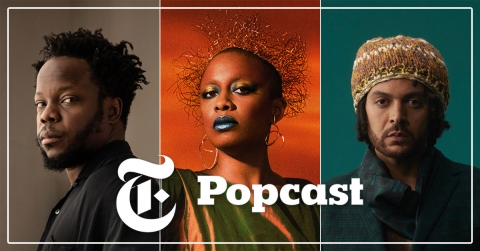Amadou & Mariam are good at what they do, says NPR music critic Robert Christgau in an All Things Considered album review, and "never better than on their brand-new Welcome to Mali." He says the Damon Albarn–produced opening track, "Sabali," is "terrific" and shows that "Amadou and Mariam absorb ideas from anywhere and sound like they're having a ball." Entertainment Weekly says Albarn's "splendidly atmospheric keyboards and production" move the couple "beyond their comfort zone—much as globalist rocker Manu Chao did for the duo's 2005 breakthrough, Dimanche à Bamako." The Chicago Tribune says the new album "is bolder still" than their last, calling Welcome to Mali "an album that throws its arms around the world, and invites everyone to dance. It succeeds joyously." Flaunt says Amadou & Mariam "capture a feeling absent from many releases in the early 2000s: genuineness."
Amadou & Mariam are good at what they do, says NPR music critic Robert Christgau in an All Things Considered album review, and "never better than on their brand-new Welcome to Mali."
Christgau says the opening track, "Sabali," is the album's most buzz-worthy, having been produced by Blur and Gorillaz frontman Damon Albarn, but also because "it's terrific." Its use of French electropop sounds goes to show how much Amadou & Mariam buck the trend of other artists' less-than-stellar cross-cultural efforts. "Amadou and Mariam absorb ideas from anywhere and sound like they're having a ball."
What's more, for all the external references in their music, the duo remains true to their roots: "Listen to Welcome to Mali and you'll notice harmonica, disco synth drums, the Somalia-born rapper K'Naan, plenty of garage guitar and the synth riff from Stevie Wonder's 'Superstition,'" says Christgau. "But that doesn't mean the album isn't basically Malian."
Listen to the All Things Considered album review at npr.org.
---
Amadou & Mariam are featured in a video interview on Pitchfork that also includes some insight from Albarn on the couple's diverse musical influences. You can watch it at pitchfork.com.
Entertainment Weekly's K. Leander Williams says Albarn's "splendidly atmospheric keyboards and production," as heard on "Sabali," "move Amadou & Mariam ... beyond their comfort zone—much as globalist rocker Manu Chao did for the duo's 2005 breakthrough, Dimanche à Bamako."
Williams sees "the earthy funk of guitarist-bandleader Amadou Bagayoko" as a centerpiece of the new album, though one that "gains much from the injection of variety," echoing Albarn's comments on Pitchfork.
Read the review at ew.com.
---
The Chicago Tribune gives the album four stars. The Tribune's music critic Greg Kot writes:
Like their countryman, kora virtuoso Toumani Diabaté, singer-guitarist Amadou Bagayoko and vocalist Mariam Doumbia are steeped in the traditions of their native Mali without being overly reverent about it. Over five increasingly adventurous albums, the couple ... has embraced a trans-global sound that sounds utterly at ease with rock, funk and electronic music while incorporating the polyrhythmic grooves, call-and-response vocal patterns and chattering guitar lines of West Africa.
He describes their previous Nonesuch release, Dimanche à Bamako, as "an inspired collaboration" with Manu Chao, and asserts that their latest "is bolder still." Kot calls the aforementioned opening track, "Sabali," "a hypnotic club-ready track of otherworldly beauty," while the rest of the disc "revels in the juxtaposition of traditional African instrumentation ... and rock, funk and even hip-hop textures," as in the guest turn from Somali-American rapper K’Naan.
Welcome to Mali, Kot concludes, is "an album that throws its arms around the world, and invites everyone to dance. It succeeds joyously."
Read the complete review at leisureblogs.chicagotribune.com and in this Sunday's paper.
---
Drew Tewksbury, writing in Flaunt magazine, might agree, stating that on the new album, the couple's "poppy African rhythms are infused with an electro-pop aesthetic that eschews expectations of music from the duo’s home continent." What is present, says Tewksbury, is "a feeling absent from many releases in the early 2000s: genuineness."
He writes:
Mixing irresistibly dance-y West African instrumentation and up-tempo dub with subtle electro, Welcome to Mali is the hub of many disparate musical styles. But every single song moves and quakes with near-flawless construction ... Welcome to Mali repackages African music for the twenty-first century—and for an audience that sees the limitless possibilities and interplay of a global culture. Bagayoko and Doumbia have the vision.
You can read the complete review on the writer's site, drewtewksbury.com.
- Log in to post comments



